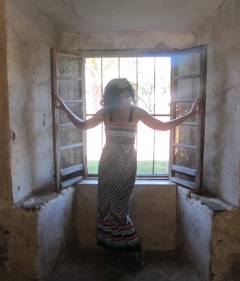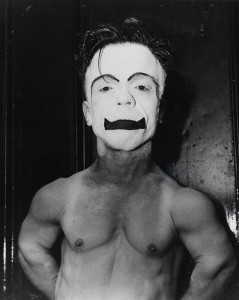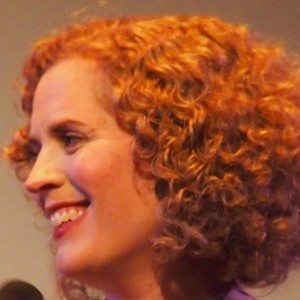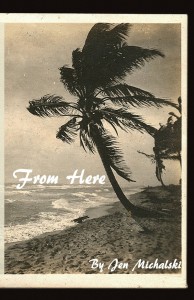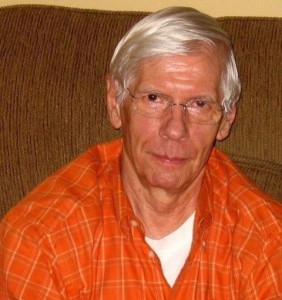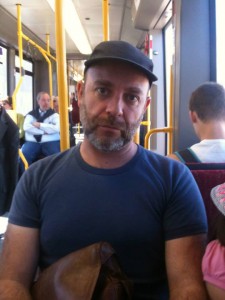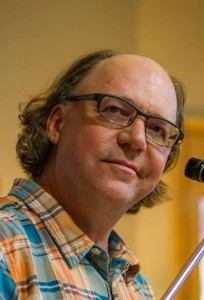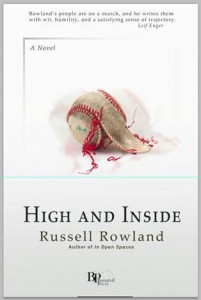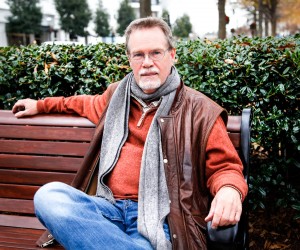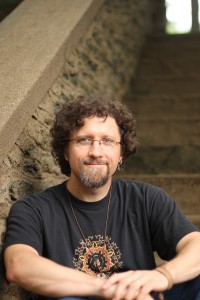 We are pleased to welcome David Ebenbach to Fictionaut’s Writers on Craft. David’s poetry, fiction, and essays have been published in a wide variety of magazines, and in collections of fiction (Between Camelots, and Into the Wilderness), poetry (Autogeography), and essays (The Artist’s Torah). David has received fellowships to the MacDowell Colony, the Virginia Center for the Creative Arts, and the Vermont Studio Center and an Individual Excellence Award from the Ohio Arts Council.
We are pleased to welcome David Ebenbach to Fictionaut’s Writers on Craft. David’s poetry, fiction, and essays have been published in a wide variety of magazines, and in collections of fiction (Between Camelots, and Into the Wilderness), poetry (Autogeography), and essays (The Artist’s Torah). David has received fellowships to the MacDowell Colony, the Virginia Center for the Creative Arts, and the Vermont Studio Center and an Individual Excellence Award from the Ohio Arts Council.
What do you read when you despair at the state of either your work or a particularly difficult manuscript in progress—any “go to” texts?
When I’m really struggling in my writing, I get a little cautious about my reading. There’s inspiration to be found in the great work of others, but maybe not when I’m despairing, when I’m clawing and gasping my way up toward the mountaintop. At a moment like that, I don’t necessarily want to look up and see someone else way above me. I don’t want to see someone who’s already at the very summit, apparently not even breathing hard, not a drop of sweat on her or his brow. I’ll tell you this, though—there was one time that I was having terrible writer’s block and I solved it by going to a bookstore and picking up a really terrible-looking, remaindered book. (I won’t name the book.) And it was terrible, and it really helped. I thought, I can do better than that. I got back to climbing.
If you could give just one piece of advice to emerging authors about editing that has served you well, what would it be?
You have to care more about the well-being of the piece than about your own comfort level, your own mood, your pride, your original goals for the work. If you care more about your own mental state than about the piece, you’ll let things stay bad just so you don’t upset yourself. You’ll let things fail because revision puts you in a lousy mood. If, on the other hand, you care more about the well-being of the piece than about anything else, you’ll do whatever it takes—add enormously, cut savagely, change wildly—to make the piece great.
How has your perception of what you “do” with your work changed as you have continued to write?
I guess the big thing is that it’s gone from being only a passion to being a passion and a profession. Partly that’s about making professional things—sending work out to magazines, doing readings, etc.—a regular part of my life, and partly it’s about a mental shift: When I was starting out I was hoping to be a writer (even though I already was, because I was writing, just as everyone is, if they’re writing)—but now I just am a writer, and I give it the space, respect, and time it deserves.
What do you feel is the purpose of literature?
Fostering empathy. Without a doubt: the purpose of literature is to foster empathy.
As a human being, what is the best advice you have to offer?
Well, it probably sounds trite, and George Saunders already said it better than I will, but it may be worth saying again: Be kind. Be kind. Give people the benefit of the doubt, try to understand where they’re coming from—writing can help with that—and be kind. Also enjoy the occasional piece of cheesecake, which is kindness in dairy form.
I really like how you approach various sensitive issues with your work, from the mental illness story “Nobody Else Gets to Be Crazy When You’re Being Crazy” recently in Agni, to several stories found in your recent collection Into the Wilderness. You take risks I applaud on many subjects, even engaging with presenting a female breastfeeding narrator in that collection’s title story “Judith I: Into the Wilderness.”
Your approaches to the female psyche feel particularly sensitive and apt. What do you think about when you are writing women? Is doing so ever challenging to you and how? I say this as a female author who really likes when male writers approach the opposite sex with sensitivity and nuance.
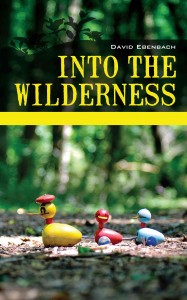 Thanks for saying all this. I believe it’s important to take on sensitive things. I usually like my writing best when I’m writing about things that people experience but are afraid to talk about. When I do that, I feel like I’m helping those experiences find their place in the light. That’s where human experience belongs, I think: in the light.
Thanks for saying all this. I believe it’s important to take on sensitive things. I usually like my writing best when I’m writing about things that people experience but are afraid to talk about. When I do that, I feel like I’m helping those experiences find their place in the light. That’s where human experience belongs, I think: in the light.
And then there are all the female narrators. The funny thing about that is I didn’t even realize how often I was focusing on female protagonists in Into the Wilderness until interviewers and reviewers started pointing it out to me, which was after the book came out. But I suppose, in a short story collection all about parenthood, it makes sense for me; my parents got divorced when I was young and I spent most of my growing-up years in a mother-run household, and my only sibling was my older sister. So I grew up with women. And of course now I’m married to a woman, which means I had another close-up view of motherhood when we had our first child. Fatherhood, too, obviously, looking at myself—but there’s something even more primal about motherhood, I think. Something culturally powerful. It’s not “Dad and apple pie,” after all. So I basically gravitated toward it without trying.
My hope is that if I pay close enough attention to the people around me, I’ll find my way into characters who aren’t entirely like me. Like I said, it’s about empathy—and not just for the reader but certainly for the writer, too.
What’s recently released or in the pipeline for your readers? Give us a sneak peek.
In terms of individual pieces of work, the Hayden’s Ferry Review recently posted my poem “What My Father-in-Law Says” online, and, as you said, AGNI posted my story “Nobody Else Gets to Be Crazy When You’re Being Crazy.” As far as books, my poetry collection We Were the People Who Moved is coming out in Spring 2015 (with Tebot Bach as the publisher), and I’m looking for a home for my new story collection, Missionaries, while revising a novel called Miss Portland. The novel is about a woman who tries to restart her life by moving to Portland, Maine, but things go screwy pretty fast. She’s a resourceful one, though, and I have hopes she’ll come through okay.
Thanks for these great questions!
___________________________
Writers on Craft is hosted by Heather Fowler, who cares about writing. She does a lot of it. Visit her profile on Fictionaut or see here for more: www.heatherfowlerwrites.com.

